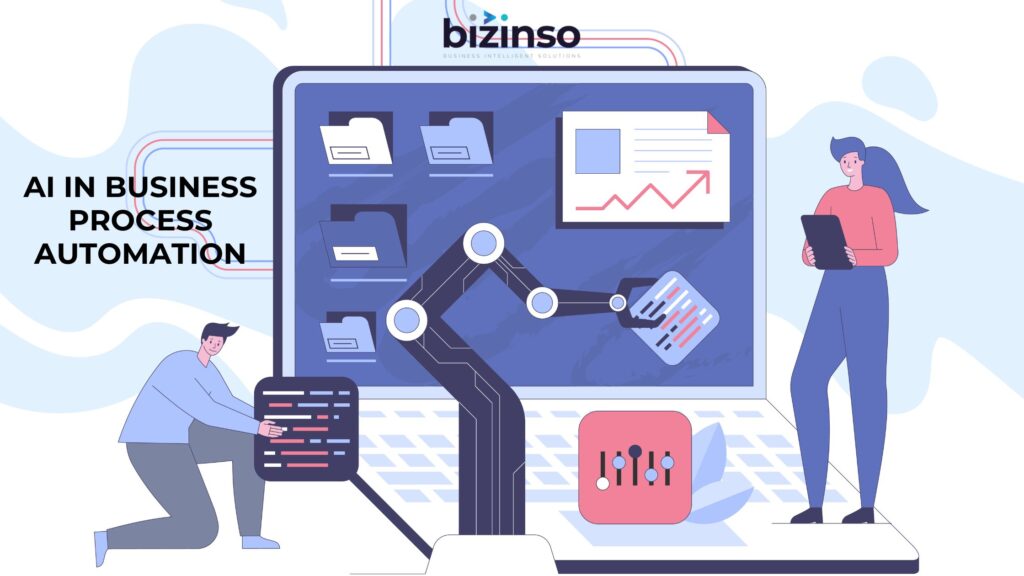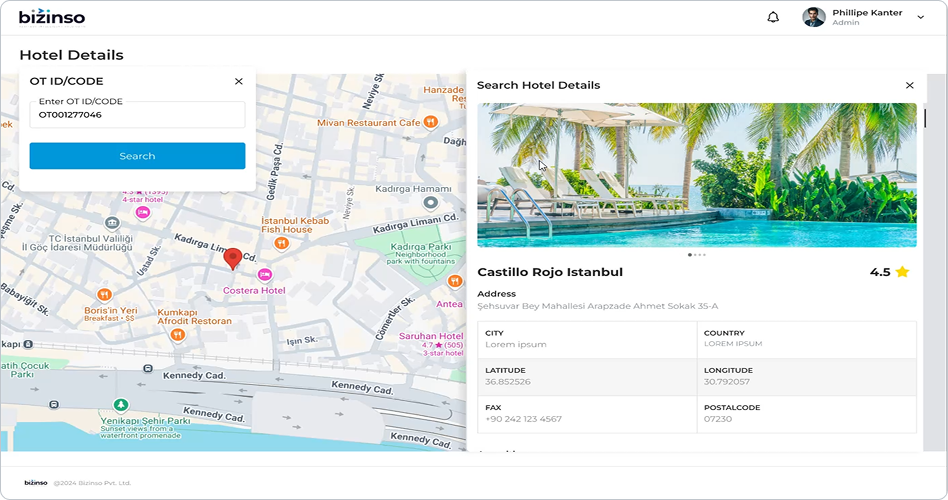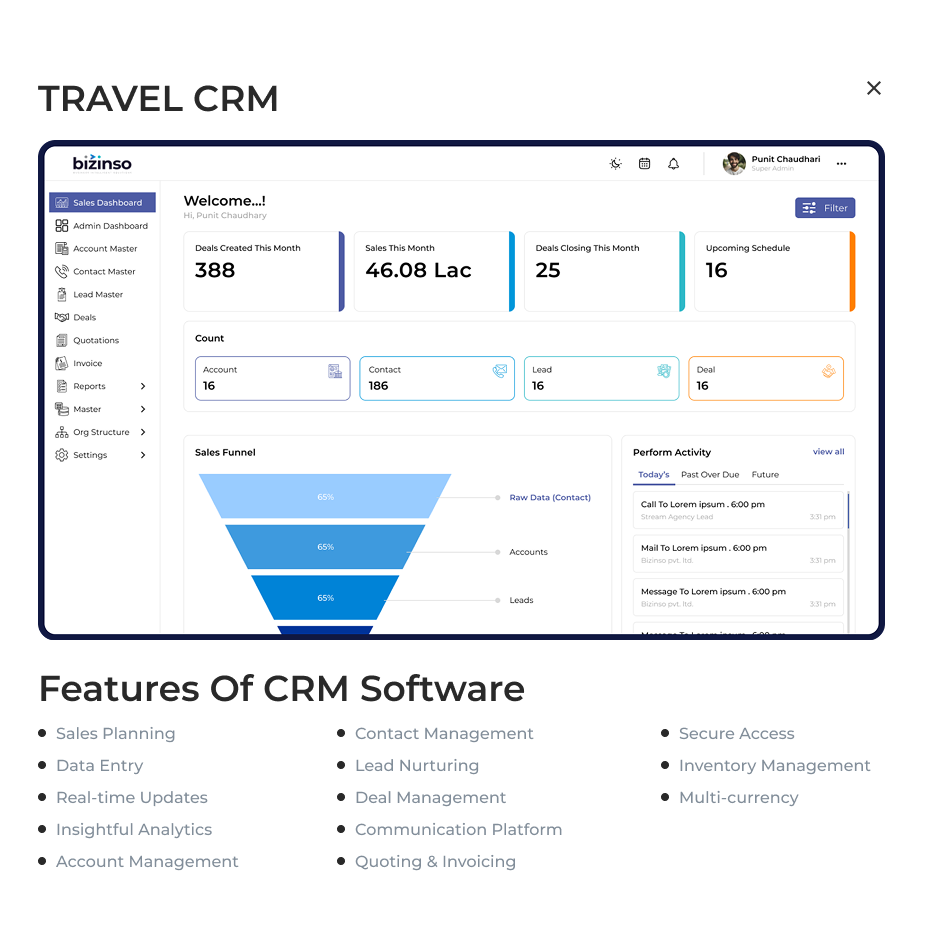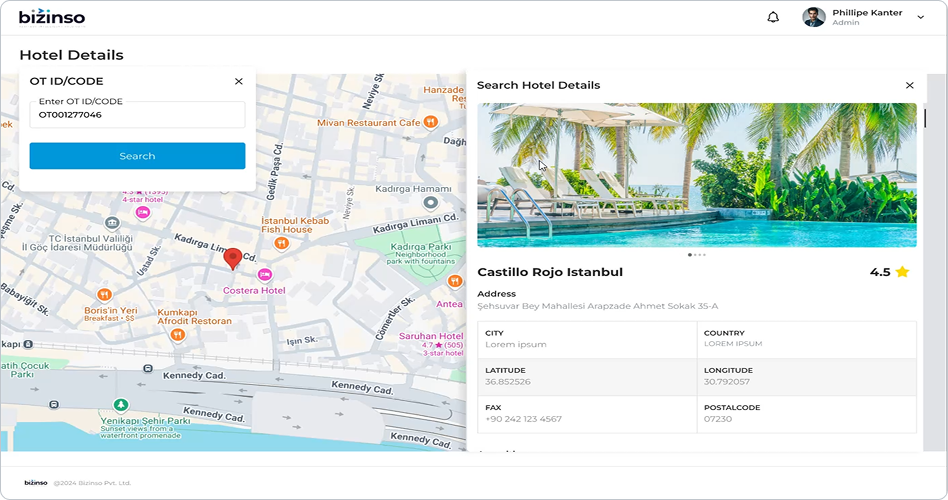
In today’s rapidly evolving digital landscape, AI in business process automation is revolutionising how companies operate, enhancing efficiency and providing predictive insights that lead to smarter, faster decision-making. As more industries look to streamline repetitive tasks and boost productivity, AI has become a critical component in helping businesses stay competitive. In this blog, we’ll explore the impact of AI on business process automation, the latest trends, and how it is reshaping industries across the board.
Understanding Business Process Automation and AI
Business Process Automation (BPA) involves using technology to automate repetitive tasks, from customer service operations to backend functions like data entry. When combined with Artificial Intelligence (AI) and Machine Learning (ML), BPA takes on a whole new dimension. AI can not only automate processes but also learn from them, allowing systems to improve over time, adapt to new data, and make more informed decisions. This combination transforms traditional automation by making it more intelligent, predictive, and responsive to the ever-changing needs of the business.
Key Trends in AI-Powered Business Process Automation for 2025
- Intelligent Data Processing
AI in BPA allows businesses to process vast amounts of data accurately and in real time. For example, AI-driven document processing tools can read and categorise data from documents much faster than human counterparts, helping companies eliminate manual tasks and reduce error rates. According to recent studies, automated data processing can reduce manual errors by up to 70% [Source: McKinsey]. - Enhanced Customer Service with AI Chatbots
AI chatbots have transformed customer service by handling common inquiries, providing 24/7 assistance, and even learning from interactions to improve future responses. AI chatbots enable businesses to meet customer expectations for quick, personalised service without human intervention. It’s estimated that AI chatbots could save companies up to $8 billion annually by 2025 [Source: Juniper Research]. - Predictive Analytics for Proactive Decision-Making
Predictive analytics in BPA allows businesses to anticipate market trends, customer needs, and potential operational issues. By leveraging AI-driven analytics, companies can proactively make adjustments to optimise performance and reduce downtime. Businesses using predictive analytics are 20% more likely to improve decision-making[Source: PwC]. - AI-Powered RPA (Robotic Process Automation)
Robotic Process Automation (RPA) traditionally handles rule-based, repetitive tasks. However, adding AI to RPA introduces intelligent decision-making capabilities, allowing bots to understand and process unstructured data such as emails, images, or documents. This combination, often referred to as Intelligent Process Automation (IPA), can improve process speed by up to 40% [Source: Deloitte]. - Personalisation in Marketing Automation
AI’s ability to analyse customer data allows businesses to create highly personalised marketing campaigns that resonate with target audiences. With AI, companies can segment their audiences and tailor content to specific user groups. This type of personalisation can increase customer engagement rates by 50% or more [Source: Gartner].
Benefits of AI in Business Process Automation
Implementing AI in business process automation brings numerous benefits:
- Increased Efficiency: AI helps companies complete tasks faster and with greater accuracy, reducing the need for manual intervention.
- Cost Reduction: By automating repetitive processes, companies can cut operational costs significantly.
- Enhanced Decision-Making: AI-driven insights allow businesses to make data-backed decisions that are faster and more reliable.
- Scalability: AI-powered automation tools can scale easily, allowing businesses to grow without increasing their workforce proportionally.
Challenges in Adopting AI in Business Process Automation
While AI offers substantial benefits, companies often face challenges in implementing it effectively:
- Data Privacy Concerns: With increased automation and data collection, companies must prioritise data security and comply with regulatory standards.
- Integration Complexity: Integrating AI with existing BPA systems can be technically complex and may require specialised expertise.
- Change Management: Transitioning from traditional processes to AI-driven systems requires organisational change and buy-in from stakeholders.
AI in Business Process Automation: Real-World Applications
- Supply Chain Management
AI in BPA can streamline supply chain processes, from inventory management to order fulfilment, by analysing data in real time to predict demand, optimise inventory, and improve distribution strategies. Companies that use AI in supply chain management can see cost reductions of up to 30% [Source: Accenture]. - Financial Services
In the financial sector, AI-powered BPA tools assist in fraud detection, risk assessment, and compliance management, where they analyse transactional data and flag suspicious activity with greater accuracy than traditional methods. - Human Resources
AI-driven automation is transforming HR by simplifying recruitment, onboarding, and employee management processes. Chatbots and AI algorithms can screen resumes, schedule interviews, and even handle routine inquiries, saving HR teams time and resources. - Healthcare
AI in healthcare BPA is advancing patient data management, personalised treatment planning, and diagnostics. Automated systems help medical staff manage patient information, schedule appointments, and process billing more efficiently, ensuring better patient care.
What’s Next? The Future of AI in Business Process Automation
The next wave of AI in business process automation is likely to focus on adaptive learning, enhanced natural language processing (NLP), and autonomous decision-making. As these technologies evolve, AI will continue to open new avenues for operational efficiency and innovation. By 2030, it is expected that nearly 50% of all business processes could be automated with AI [Source: World Economic Forum].
Conclusion
As we move into 2025, the integration of AI in business process automation is becoming indispensable for companies aiming to remain competitive. By harnessing AI for tasks ranging from data processing to customer engagement, businesses can unlock unprecedented efficiencies and create personalised experiences for their customers. Embracing these innovations can ultimately lead to stronger business growth, improved decision-making, and a more agile approach to market changes. Now is the time for businesses to take a closer look at their processes and consider how AI-driven automation can propel them into the future.
Curious about how AI can transform your business processes? Connect with us to discover strategies tailored to your company’s unique needs. Share your thoughts or experiences with AI in business process automation in the comments, and don’t forget to follow us for the latest insights!
Contact Us for more insights.





